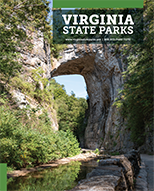Read Our Blogs
Tips to Keep Warm While Winter Camping
We're on to colder temps and more unpredictable weather, but that doesn't mean it's time to hang everything up for the season just yet. Fewer people, new perspectives, and snowfields await!
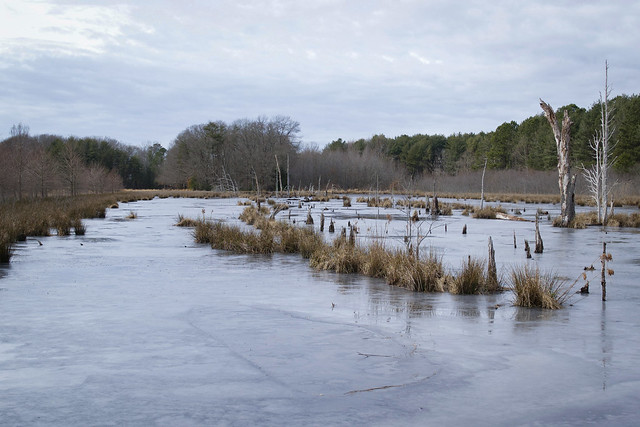
Wetlands froze over on the Jones Pond Loop Trail.
Virginia State Parks are a great place for you to test out your cold-weather backpacking skills at any of our primitive campsites open throughout the winter! To help get you started, I hiked into Caledon State Park's primitive sites to set up a camp and give you some tips for keeping warm this winter.
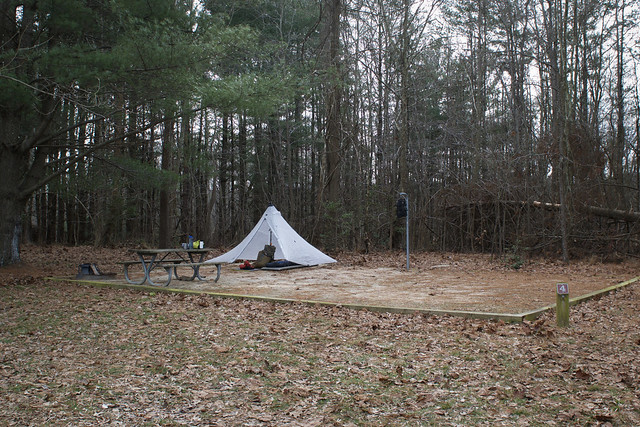
Campsite #4 at Caledon State Park.
Take the Right Gear
4-Season Tents: If you're looking into extending your camping season to year-round bliss, a 4-season tent is a must. 4-season tents typically have two full faces of nylon, one as the tent's body and one as a PU-coated rainfly, though single-wall 4-season tents do exist like the one I have pictured here. I've grown to prefer floorless shelters for their simplicity, and I don't have to worry about taking my boots off.
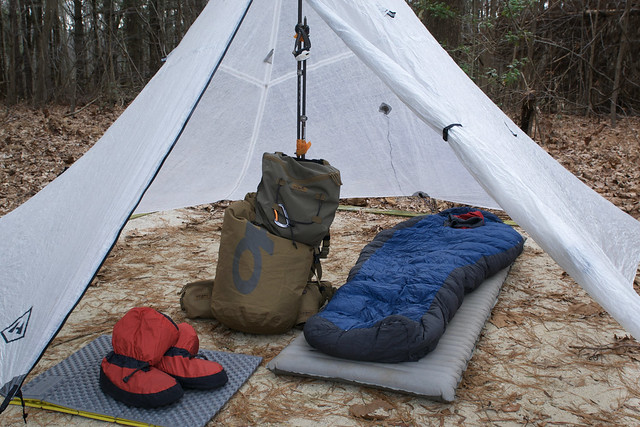
Lighter weight backpacking shelters with mesh sidewalls are great for 3-season use, but a 4-season shelter will trap your body heat and retain substantially higher air temperatures than their lighter weight brethren.
Insulated sleeping pads: In general, the higher the R-value of a sleeping pad, the warmer you'll sleep. Technically, R-value is a measurement of the insulation ability of a given material. Regarding sleeping pads, we're talking about how well the pad insulates the users from the conduction of sleeping on cold surfaces. Most sources recommend an R-value over 5 for any kind of winter camping. I currently use a pad with an R-value of 5.7 and have good success sleeping directly on the ground in all manner of bad weather.
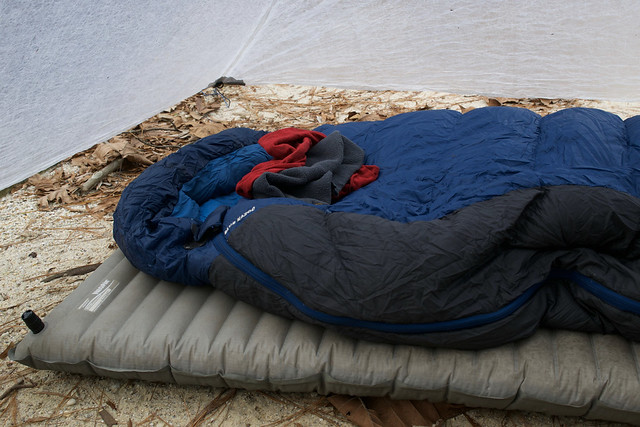
From a philosophical perspective on camping, my sleeping pad is the one item I never skimp on. A good night's sleep is crucial to recovery and morale when you're out for days on end.
Sleeping bags: I'm a little relaxed in this department, but most sources will suggest taking at least 10 degrees more than you'll need. If it's going to be 10°F, you'll need to take a 0°F bag. In my experience, there's room to play with this if you have a very warm sleeping pad. For example, I've slept comfortably in 0° temps in a 15° sleeping bag on a 5.7 R-value pad in a 4-season tent. You'll have to play around with your sleep/shelter system to find a warmth-to-weight ratio that you are comfortable with.
Pro Tips:
Hot beverages all day: Boiling water for tea, coffee, and hot cocoa is a huge morale booster when the temperature drops and is a great way for you to stay warm. Placing a hot bottle near your arteries (between your thighs and under your arms) is an easy way to warm the blood traveling to your extremities and stay warm at the end of the day. Leftover hot water can be placed into bottles and should go into your sleeping bag with you at night to act as a heat source.
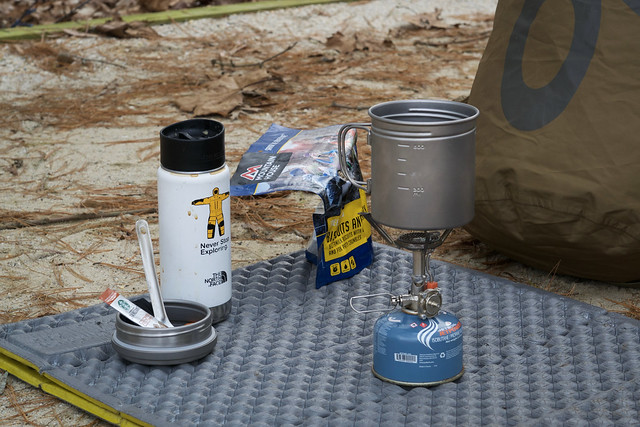
Speaking of your extremities…
Head, hands, feet: Lots of heat is lost through your extremities, so covering these parts of your body with quality insulators is a significant factor in retaining body temps. I was close to losing my toes a few times before I ponied up for some down booties. Never again will I snow camp without them. Synthetic booties are also a good choice--often less expensive than their down counterparts and most insulate better when wet. "Sacred socks" are also a must: these are the extra high loft wool socks you wear solely around the campsite and to sleep in. As pops would say, "You gotta take care of your dogs!" Invest in a wool cap and some solid gloves to keep your digits!
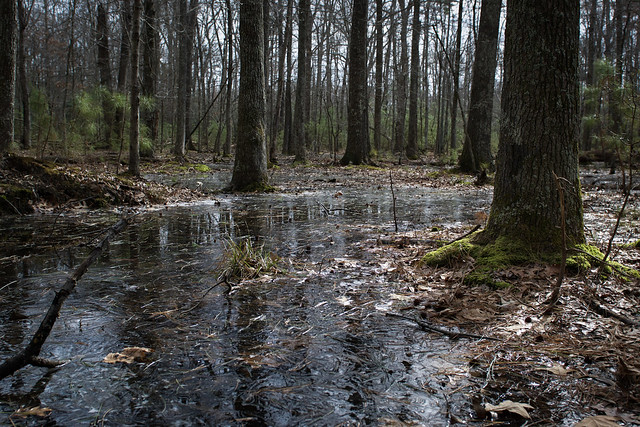
The wetlands throughout Caledon made for an interesting
photo opp in below-freezing temps.
Butter: Eat fatty foods! Add butter to everything! Your body is constantly fighting to regulate its temperature and self-preserve, and dumping calories into your system is the only way you can stay ahead of your metabolism. Butter is an excellent source of the fat your metabolism needs to burn hotter and longer. Add a guilt-free pat to every meal when the temperatures are below freezing. Bonus — Butter is easy to preserve and transport when temperatures are near freezing (I've even just thrown a pat into a paper towel).
Sleep in/on your pack: Your backpack can act as an extra layer of insulation between you and the ground or as an additional barrier against condensation. If you can fit your sleeping pad inside your bag, go for it! Just don't stuff yourself in there to the point that you are restricting circulation. I'll place the foot box and bottom half of my sleeping bag inside my pack if it's really bitter cold.
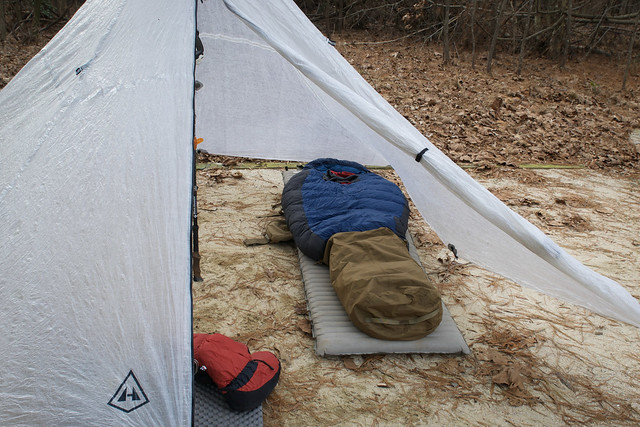
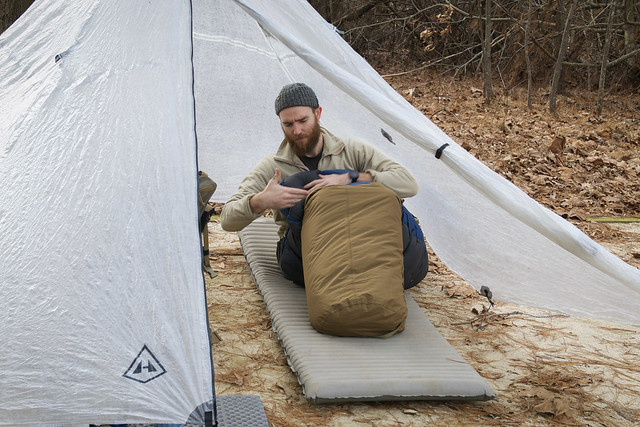
Don't get in your sleeping bag cold: Sleeping bags do not create heat — they retain it. If you get into your bag cold expecting to warm up, you're in for a rough night's sleep. Running around, doing jumping jacks, push ups or some sweet dance moves before getting in your bag will kick start your metabolism and help you sleep warmer.
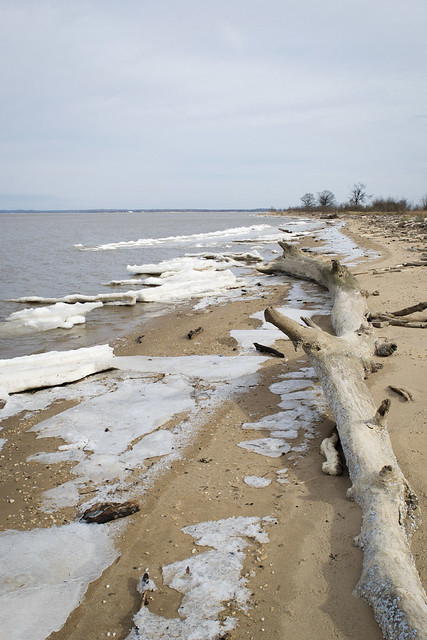
Ice builds up on the shores of the Potomac at Caledon.
Remember, "everything we do is work" when we're outside backpacking or on extended trips wilderness living. If you're cold, get up, get moving and start addressing your needs.
Practicing these skills in a Virginia State Park is a great way to prepare yourself for bigger adventures and an awesome way to introduce others to your passions. Organize a group trip, talk to a ranger about what the parks offer, and get out into the parks this winter. We'll see ya out there!
If you have read the article and have a question, please email nancy.heltman@dcr.virginia.gov.






